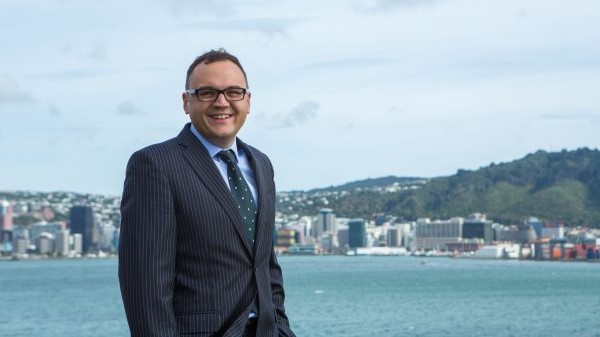Transport infrastructure will be a major election issue

New Zealand’s roading network and the future of transport infrastructure will be a major election issue this year. Even before Cyclone Gabrielle and serious flooding in February, road transport operators and the public alike were complaining about the parlous state of our roads.
Extreme weather events have made our roads worse, especially on the east coast of the North Island in Hawke’s Bay, Tairāwhiti Gisborne, Bay of Plenty, and Northland. It’s up to the government – no matter what form it takes after the election on October 14 – to make sure our whole transport network is resilient and fit-for-purpose into the future.
We know that when you run down the maintenance of your infrastructure and then you get unforeseen and extreme weather, the impact will always be worse than if you had maintained things properly. So, we have to build back better. Last year, the government injected $400 million additional funds into roading maintenance. That was a long time coming, but that additional amount – at least – needs to be invested every year because otherwise we are not going to get on top of the maintenance mountain that is our state highway network. In an election year, it is vital that our united industry keeps the pressure on to get that reassurance out of whichever side wins the election in October.
Northland’s highway network, for example, has something like a slip every kilometre. Repairing it is not just about the road itself, it’s also the surrounding terrain and ensuring that everything around the road is safe. That’s a massive job, but we shouldn’t allow the anti-road brigade to tell us it’s just not worth it. Flying pigs won’t feed the country.
This week marks the one-year anniversary of the opening of the Transmission Gully highway (part of SH1), which is now used by 75% of heavy vehicles in and out of the capital. Although it has proved to be a challenging project, Transmission Gully is really a bit of a masterpiece in terms of infrastructure in what it has done for the Wellington region. Often with these projects we take the wins for granted – greater resilience, far better safety, faster travelling times and less congestion.
Transmission Gully, and also the Waikato expressway, show us the standard we can achieve if we rebuild better. Coupled with that is the need to increase maintenance to the whole network. Better maintenance and construction of new roads mean we will be able to meaningfully lower emissions through better materials reducing friction and having roads on major freight routes that could support larger trucks.
We’ve got to support our primary sector, we’ve got to support our export goods market, and we’ve got to support communities getting the food and products they need. Roading is still the key to that. Prime minister Chris Hipkins appears to understand this. He has said we have got to find the money for better roading. That’s the truth of it.
We’ve got to keep investing in good quality roads, we’ve got to keep investing in a wider infrastructure that supports our lifestyle and economy and fosters the kind of productivity that New Zealand needs to grow our way out of inflation. We can’t afford to go backwards.
This year, Transporting New Zealand will be launching an election manifesto, in time for our annual conference, to be held at the Lower Hutt Events Centre, from June 28 to 29. Some issues at the conference will be specific to the needs of road transport operators; however, roading maintenance and conditions will be front and centre, as well as the need to build new roads.
We will host a political panel of major spokespeople from the political parties, including Transport Minister Michael Wood and National’s Simeon Brown. We’ve also got some great speakers who will talk about the kind of changes that businesses need to be thinking about in this stressed economy.
New Zealand will have a new government at the end of the year. We won’t have a Labour majority government anymore; it will either be a Labour-Greens government, or a National-Act government – but who knows, Winston Peter’s New Zealand First or the Māori Party could also be thrown in there for good measure. As a sector, we have to be confident of our agenda, amplifying a unified voice no matter which parties are elected. Coming to conference and having your say will help us do that.
Make sure you book your place at the conference. Conference registration will be available on our website from April 12, www.transporting,nz, or email Jenny Murray, jenny@transporting.nz or info@transporting.nz.
- Nick Leggett is chief executive of Ia Ara Aotearoa Transporting New Zealand.
And you can listen to me talking to David Killick here.





